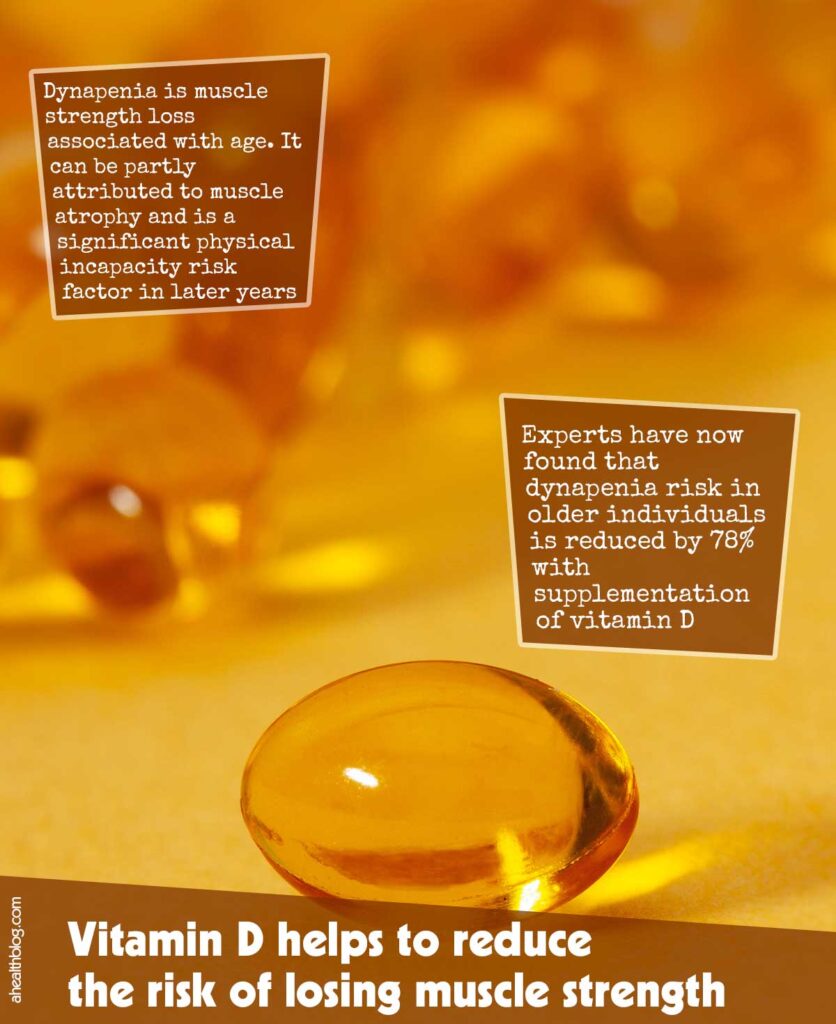Vitamin D plays an indispensable role in regulating the absorption of phosphorus and calcium, while also supporting immune system health and brain functionality. Researchers have found that supplementing with vitamin D significantly decreases dynapenia risk for older individuals by 78%.
Dynapenia, or muscle strength loss associated with age, can be partly attributed to muscle atrophy. Dynapenia increases your risk for physical incapacity later in life. People living with this condition are more prone to falls, hospital visits, early institutionalization and death.
Data were analyzed for 3,205 adults without dynapenia aged 50 and older who participated in an extended observation study known as the English Longitudinal Study of Ageing over four years.
Vitamin D is a hormone known to play many different functions, from helping with muscle repair and calcium release for kinetic muscle contraction, to calcium release for muscle repair. Therefore, we expected Vitamin D would result in some sort of muscle changes as evidenced by this study.
Muscle and bone tissue are interdependent not just physically but biochemically as well. Vitamin D deficiency or insufficiency, for instance, may result in bone mineral density loss as well as reduced muscle mass, function and strength.
Study participants included men and women aged 50 or older without dynapenia; grip strength measurements in terms of overall muscle strength were 16 kg for women and 26 kg or greater in terms of men.
The primary conclusion was that individuals with inadequate vitamin D levels, defined as blood levels under 30 nanomoles/liter, experienced a 70% increased dynapenia risk compared with individuals who maintained optimal levels (i.e. over 50 nanomoles/liter).
This result is noteworthy as it suggests that deficiency of vitamin D increases muscle weakness risk by 70%. Since many individuals with osteoporosis take vitamin supplements to increase bone health, evaluating supplementing with vitamin D was necessary in gauging its efficacy was essential.
Excluding vitamin D supplement users and individuals with osteoporosis from analysis revealed that when vitamin D deficient individuals at the start of the study versus those with normal levels had 78% greater risks for muscle weakness by 4 years than individuals who were not deficient, while risk increased further for individuals who were under 30-50 nanomoles/liter.
Results showed that both vitamin D insufficiency and deficiency increase risk for muscle weakness. Therefore, according to these study results it’s imperative that those suffering from either insufficiency or deficiency take appropriate action by supplementing with Vitamin D.
The study examined data for people living in the UK. Though Brazil experiences many more sunny days annually, they are known for having high incidences of vitamin D insufficiency and deficiency among older people – something which occurs throughout the globe.

